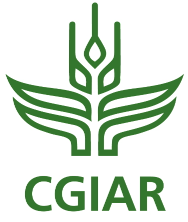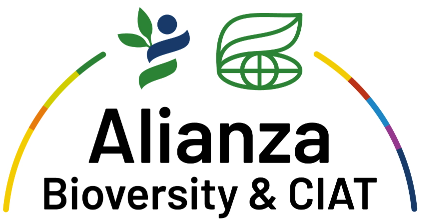Panama will host meetings for the future sustainability of rice production in Latin America and the Caribbean

The sustainability of rice production, the food most consumed in the world, continues to be a major challenge in Latin America, which sees on the horizon challenges in the face of climate change, pests and other obstacles in the post-pandemic, as well as opportunities for, through scientific and technological development, the region becomes a key factor for global food security.
The challenge is enormous, considering that in this part of the world there are countries that are self-sufficient in the supply of cereal to their population, while others are not, including Panama. Within this framework, Panama City will host two meetings in June 2024 that will feature the presence of Latin American experts and other regions to share experiences and knowledge on how research and technology can pave the way for the solid development of the sector.
The XIV International Rice Conference for Latin America and the Caribbean and the Ninth International Conference on Pyricularia in Rice and Wheat will be the scenarios that will provide the opportunity, between June 10 and 14, 2024, in Panama City, for both specialists such as farmers, students and representatives of other relevant economic sectors, can learn about trends in the search for more efficient rice production.
The holding of the meetings was announced in Panama on October 3, and on behalf of the organization of these events, by agronomist Eduardo Graterol, executive director of the Latin American Fund for Irrigated Rice (FLAR).
This will be the first time that the Conference will be held in Panama and Central America, as well as the first time that the Pyricularia Conference will take place in Latin America, both events will be held in parallel.
The conferences are held every four years, but have not taken place respectively since 2018 and 2019, due to the interruption of activities due to the pandemic.
Graterol explained that FLAR is a public-private alliance that brings together more than 30 organizations from 17 countries in Latin America and the Caribbean, including Panama, and that has as a strategic member the Bioversity & CIAT Alliance, both centers based in the Colombian city of Cali. Through FLAR, knowledge, technologies and innovations are generated and disseminated for a more efficient, productive, sustainable and profitable rice sector in this part of the world.
“This is a great opportunity for Panama, as well as for producers, technicians and researchers from the entire region of Latin America and the Caribbean, to meet to update knowledge about rice research and research to combat the damage it causes. the fungus pyricularia in crops,” said the executive director of FLAR.
The Conference and Congress will be world class due to the level of exhibitors they will have. In addition to FLAR, the organizers of this Conference are the Bioversity & CIAT Alliance and the Panamanian Rice Foundation (Funparroz), which brings together in Panama the companies Conagro Semillas (Grupo Agrosilos), SECOSA (Grupo Calesa) and the Federation of Rice and Grains of Panama (FEDAGPA). Additionally, through FUNPARROZ, the IDIAP (Institute of Agricultural Innovation of Panama) and the Faculty of Agricultural Sciences of the University of Panama participate.
VALUE WORK
Graterol explained that Panama is one of the countries with the highest per capita consumption of rice in Latin America, approximately 70 kilos per year per person, and that it is an example of how it is investing in technological development in this productive sector.
From this perspective, there is an opportunity for Panama and the region, not only for self-sufficiency in rice production, with varieties with greater potential, but also to increase the available volume of food through better agronomic practices.
For Graterol, the issue is also relevant at a time when the gradual tariff reduction for the importation of rice from the United States to Panama is in process, through the Free Trade Agreement with that country, which makes it necessary for there to be better competitiveness of local production, with quality and price accessible to consumers.
He explained that most of this production in Panama is carried out dry land, that is, depending on rainwater, a system in which it has also been shown that, with the technical support of FLAR, it is possible to increase productivity, as well as in the irrigation system. The FLAR agronomy program, working with Panamanian rice producers, has demonstrated average increases in yield of between 20% and 30% in commercial fields, with a cost reduction between 10% and 20%, using certified seeds, practices sustainable soil adaptation, precise management of fertilization, weed management and monitoring of pests and diseases, as well as rational water management.
PYRICULARIA CONFERENCE
Pyricularia is one of the most important diseases in rice cultivation, due to its aggressiveness and evolutionary capacity, which makes it necessary for the plant to have defense mechanisms.
María Fernanda Alvarez, leader of the Rice Program of the Bioversity & CIAT Alliance, explained that the conference has the objective of updating strategies to generate resistance to the pathogen, as well as working to generate lines and varieties resistant to the disease.
He highlighted the importance of bringing together people with the greatest experience in the management of pathogens from universities and research centers around the world in these conferences, in order to exchange knowledge. He also highlighted the interest he has in the participation of students who need this knowledge to later help strengthen the region in this type of work and studies, and that the decisions made are more informed and scientific.
“One of the mandates of the Bioversity & CIAT Alliance is to work for food security. (…) To the extent that there is development from a scientific and methodological point of view, and also agronomic, of how rice cultivation is being worked, we are going to be much closer to that goal of food security,” stated the expert. . She added that she considered it key that there be stability in yield, for which it is essential to generate a great dialogue around pyricularia in rice cultivation. Additionally, international specialists in wheat pyricularia research will participate, a crop that is also affected by this fungus.
Alvarez underlined the purpose of the conference to disseminate research and development from all points of view that are related to pyricularia, in addition to generating cooperation networks to strengthen this research.



